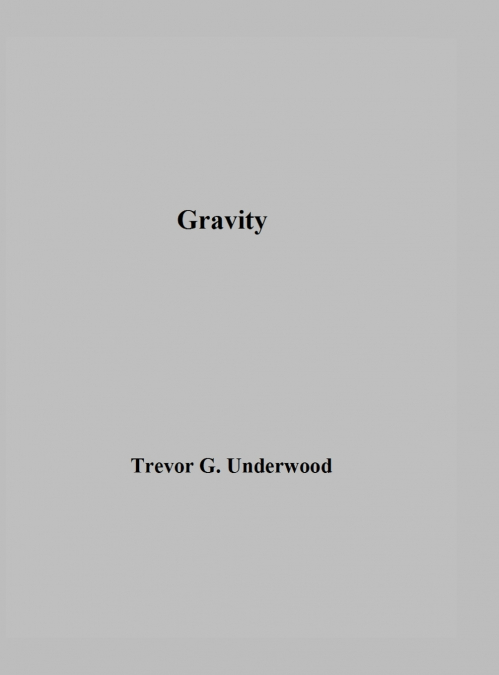
 Librería Perelló (Valencia)
Librería Perelló (Valencia)
 Librería Aciertas (Toledo)
Librería Aciertas (Toledo)
 Librería Elías (Asturias)
Librería Elías (Asturias)
 Donde los libros
Donde los libros
 El AlmaZen del Alquimista (Sevilla)
El AlmaZen del Alquimista (Sevilla)
 Librería Kolima (Madrid)
Librería Kolima (Madrid)
 Librería Proteo (Málaga)
Librería Proteo (Málaga)
This book picks up where the last book, Underwood, T. G. (2023). General Relativity, left off, addressing the omission that 'A fundamental theoretical explanation for the weak attractive gravitational force between matter is also long overdue.' We know less about gravity than any other force. The purpose of this book is to try to fill that void.Part I reviews contributions to the understanding of the effects of gravity, starting with extracts from Kepler and Newton. Part I also describes alternative forms of Newton’s law provided by Gauss’s law for gravity, and Poisson’s equation. Part II addresses 'What is Gravity?'. It begins by reviewing Einstein’s unsuccessful attempts at producing a classical unified field theory, a unified theory of electromagnetism and gravity, between 1923 until he died in 1955. But then it moves on to consider quantum entanglement, or some form of entanglement between matter, as a potential source of gravity and to examine the origin of gravity according to the Big Bang theory. In an attempt to answer the question: 'Why does matter attract matter?', facts related to gravity and other forces of nature are listed and reviewed. The underlying cause of gravity remains elusive. From this analysis it is most likely to be found in the initial creation of matter and expansion of the universe, not in quantum theory, nor in a unified theory of electromagnetism and gravity. This appears to suggest that gravity resulted from some form of entanglement between matter after it was driven apart in the expansion of the universe following the Big Bang. The existence of a very large amount of energy at the time of the origin of the current universe, makes the idea of a universe in which gravitational attractive forces eventually overcome the forces causing the expansion of the universe particularly attractive, in that it provides an explanation for this energy and for the Big Bang without invoking dark matter or dark energy. The gravitational field at the at the surface of the universe, is approximately equal to the gravitational constant.